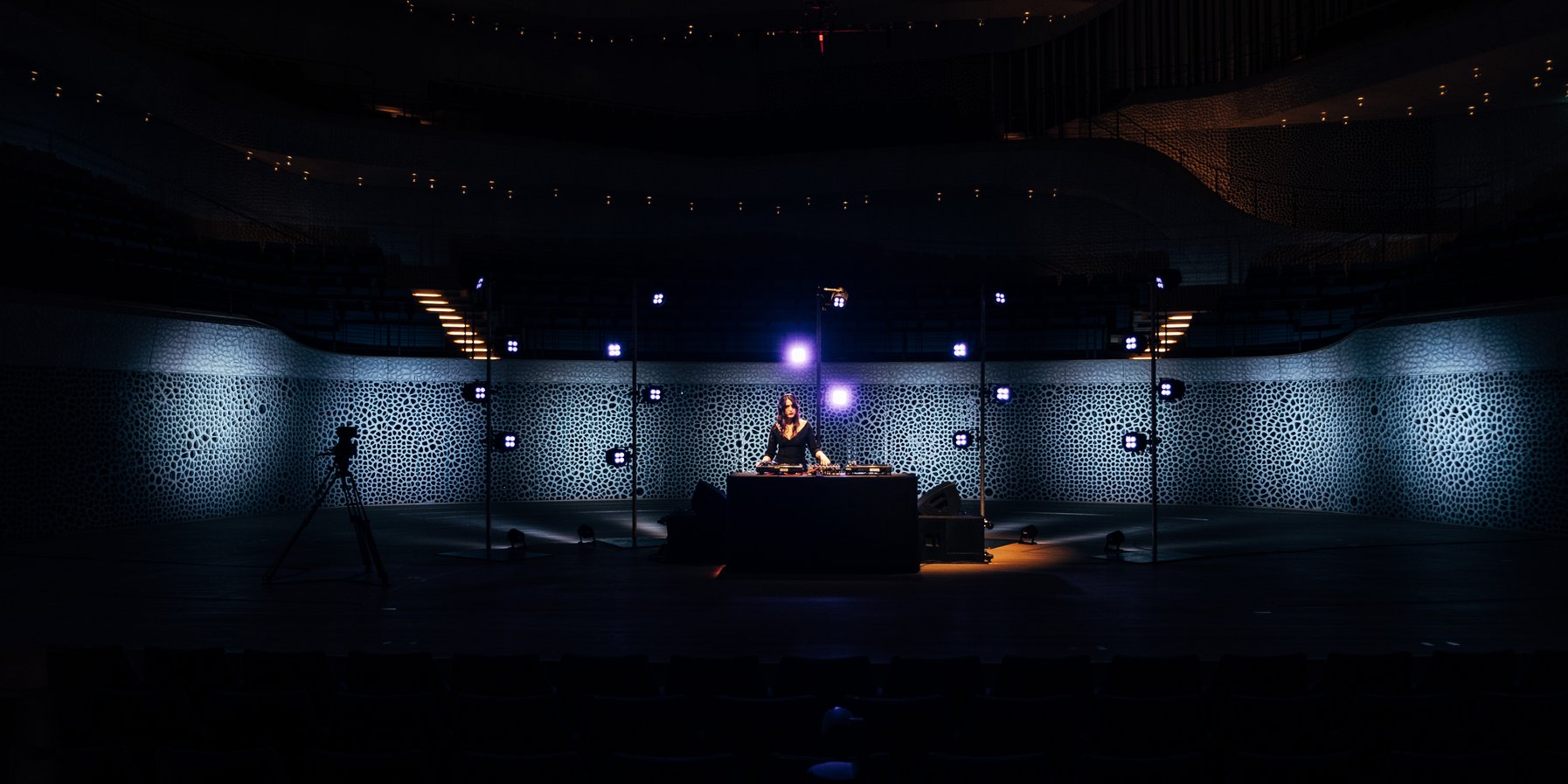The »Elphi at Home« series was born in spring 2020. When the concert halls were closed to the public, the Elbphilharmonie invited artists to stream concerts live from the Elbphilharmonie.
The artist
It all started at the legendary Golden Poodle Club, the centre of Hamburg's alternative scene. In the club notorious for mottos like »The vomit made my jacket all sticky« or »The world watches us wipe the floor«, Helena Hauff played her first DJ sets, laying the foundations of an international career. In the meantime, the musician, producer and DJ is one of the world stars of the techno scene, has released several albums and even set up her own label, »Return to Disorder«. She describes her music as »rough, dirty and a bit cold« – EBM, techno, Detroit electro and wave are said to influence her style. The Hamburg artist rigorously refuses to employ digital programmes like Ableton: she assembles her beats on analogue machines, with her Roland 808 at the centre of the ensemble. However, her gig at the Elbphilharmonie doesn't present her own music, but rather a DJ set paying tribute to the beginnings of techno in Detroit.
Setlist
1. Arpanet - Illuminated Displays
2. Drexciya - Unknown Journey IV
3. Ultradyne - V.1014
4. Dj Stingray 313 - Acetylcholine
5. Jeff Mills - Protection
6. The Suburban Knight - Infra Red Spectrum
7. Aux88 - Alien Life Form
8. Aux88 - Electro/Techno
9. Professor X - Professor X (Saga)
10. Cybotron - Clear
11. The Other People Place - Let Me Be Me
12. Drexciya - Powers Of The Deep
The music
This will come as a surprise to some contemporaries, but the fact is that techno didn't originate in Berlin. Its true birthplace is the American metropolis of Detroit, where a new type of electronic music emerged in the mid-1980s that became known as Detroit techno; it can also be called the prototype of techno. Unlike in other directions, e.g. of house music, here instead of »positive vibes« the machine itself occupies the limelight, raw and direct like the city itself. Detroit was once famous for its car industry, but the 1980s marked the beginning of a process of urban decay, accompanied by growing unemployment and increasing homicide rates. And this left its mark on the music as well: Detroit techno boasts minimalistic beats with a strong focus on the bass line, free of any kind of disco glamour. In the meantime, the Detroit techno sound has long since evolved from a local music trend to a global one, and its founders – Juan Atkins, Blake Blaxter, Robert Hood and Jeff Mills – are seen as icons today.
Text: Anastasia Päßler, last updated: 13 May 2020
Supported by the Haspa Music Foundation












